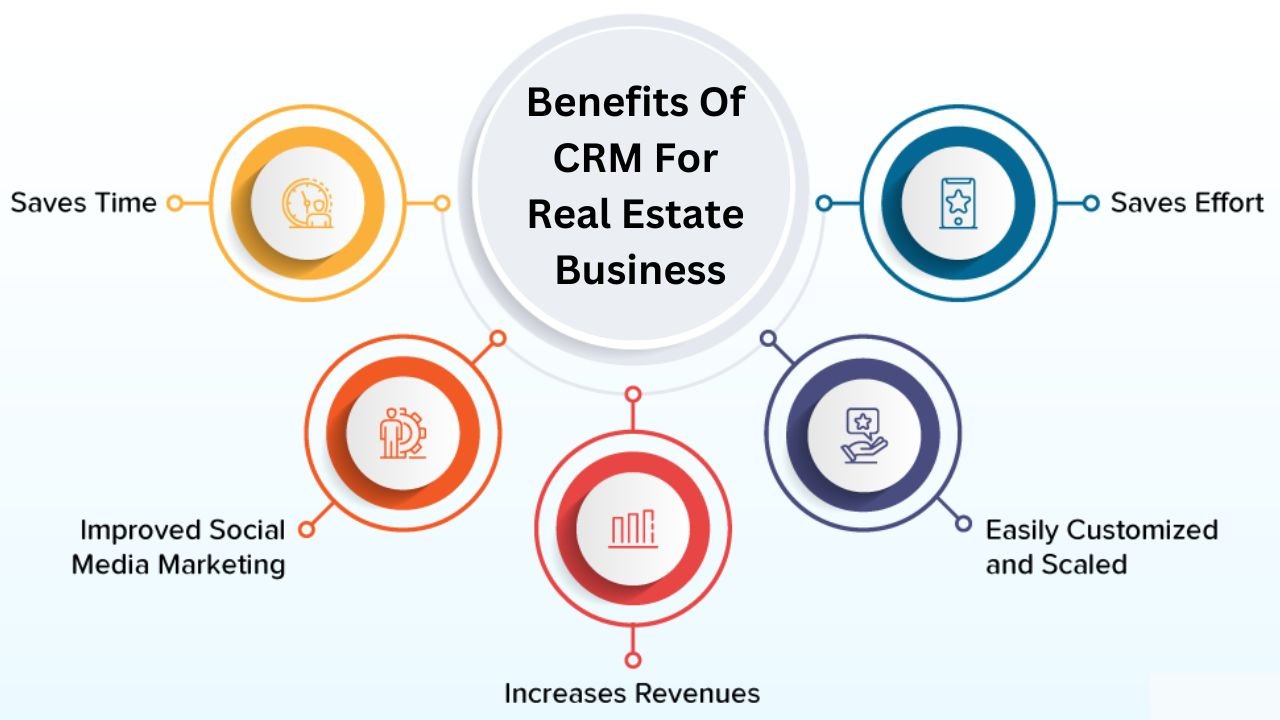Owing to high competition within the company, it is paramount to ensure that the CRM is well-managed and efficient in the real estate business. A proper CRM also enables the agents to control leads and the data they have and also impacts the overall market analysis positively. In this article, some of the best practices and necessary tools for cleaning up your CRM are presented specifically for real estate agents and are intended to help success in the long term.
The importance of CRM Cleanup for real estate agents
Within the context of real estate business, having an overloaded and unstructured CRM could result in various effects such as missed prospects, loss of leads, and inefficient market segmentation. Implementing CRM cleanup strategies is essential for
- Improving how leads are both captured and pursued
- Usefulness, practicality, cost-effectiveness of the system, and most importantly the quality and reliability of the data obtained.
- Making optimum utility of the marketing information and intelligence.
- Achieving the organizational goals of CRM through efficient performance and effectiveness.
Understanding the need for CRM Cleanup
How the management of real estate CRM needs to be a priority for real estate agents.
Identifying common CRM issues
It is critical first to look at the recurring problems faced by real estate organizations in their CRMs. These include:
- Data duplication: On an unrelated note, duplications greatly affected most CRMs as they created confusion and led to a skewing of data. This can lead to the situation whereby agents are calling the same lead severally a situation that may create a wrong perception on the client’s side.
- Outdated information: In the long run, customers’ records can weigh down a CRM database with useless data, including obsolete contacts and dead leads. This clutter reduces the efficiency of the CRM system to reduce.
- Incomplete records: When some records are missing in a CRM it becomes difficult for a real estate agent to manage the leads rightly. Even when collecting leads, there will be cases where one will lack some details like phone numbers or email addresses which hinders the nurturing of the leads.
The impact of a Clean CRM on real estate success
Having a neat and sorted CRM in his or her possession is one of the most effective weapons in the real estate business. It improves the chances to monitor the leads, and the potential market, and overall make sound decisions. Specifically:

- Improved lead management: By using current and relevant data, the agents will be able to effectively sort the high-quality lead data that will help enhance conversion rates.
- Enhanced market analysis: Thus, clean data assists the agents in understanding the market well enough to identify opportunities, as well as to serve the needs of individuals or particular neighborhoods.
- Increased productivity: Optimal CRM prevents agents from necessitating sorting out irrelevant or stale information because it optimizes the efforts in undertakings that increase revenues.
Implementing effective CRM Cleanup strategies
Practical steps for real estate agents to clean up their CRM systems.
Data deduplication and consolidation
In cleaning up CRM, the first task is the removal of duplicate records as will be discussed below. The vast majority of CRM systems contain integrated tools or application add-ons that can help in this regard. Agents should:
- Run regular audits: It’s necessary to have some backup checks performed on a regular basis to find the records that can be merged with similar ones.
- Use automation tools: Utilize the features of the CRM software that allow the identification and marking of records’ duplication as easily as possible.
Having lots of leads is not the same thing as having a complete profile of each of your prospects, and consolidation is needed for this. This involves:
- Filling in missing data: In case of a lead, additional information about them can be inserted, for example, address or phone number; or information about previous communication if any.
- Merging partial entries: The different records that relate to a particular lead should be merged, to ensure that all the data is consolidated in the lead profile.
Regularly update and validate data
CRM Maintenance, Since CRM generates lots of data, it is crucial that it is updated and that the information in it is verified. Agents should:
- Verify contact information: This is in an effort to check and update the contact details in an attempt to ensure that they are correct.
- Purge outdated leads: Erase cold contacts, those who are not interested anymore, or those who have disappeared; the CRM should only include active prospects.

Automate Data Validation can play a key role in maintaining data accuracy agents can:
- Set up alerts: Integrate specific signals to give agents the prompt about the necessity to update the data.
- Integrate third-party tools: This will involve navigating to data validation tools that can work with the CRM so as to make sure that the information stays current and accurate.
Organize data with custom fields and tags
Strengthening Organizing data within the CRM with the help of custom fields and tags provides a great opportunity to manage leads. Agents should:
- Create custom fields: Custom fields allow to tracking of particular data related to the real estate transactions, like preferences in properties or time frames of the purchase.
- Apply tags: Tags can be created based on the potential of the lead by various parameters such as lead source and the buying process interest level among others.
Segment Leads for Targeted Marketing, With organized data, agents can segment their leads more effectively. This allows for:
- Personalized marketing campaigns: This should be done by segmenting the marketing campaign to make it relevant to the segments of first-time homeowners or investors, for instance.
- Streamlined follow-up processes: Schedule the follow-ups based on the leads’ segmentation and give more attention to the leads that are hot, warm, or cold depending on the situation.
Tools and best practices for ongoing CRM optimization
It is a common misconception to think that cleaning up of CRM is an activity that can be accomplished once and in the future, it will not be required again to be done. To achieve sustainable success, real estate agents should embrace tools and practices that would help to optimize the CRM continuously.
CRM data management tools
Several tools are available to assist with ongoing CRM maintenance:
- Data management software: Some such resource mobilization tools include Data. ZoomInfo, or any other source such as the company’s website, can be useful for agents to maintain up-to-date and clean CRM.
- CRM integrations: CRM software should be chosen with the possibility to be connected to other platforms, for instance, email marketing and social networks, to keep all the information gathered in the CRM up to date.
Automate Regular Cleanup tools can significantly reduce the manual effort required for CRM maintenance:
- Automated data cleaning: Also adopt automated features to settle for data normalization methods that include but are not limited to scanning for duplicates, updating the database, and dealing with outdated records.
- Workflow automation: Develop workflow procedures that would cause a clean-up action to occur such as deleting leads that have not been active for a given time.
Establish Best Practices, Finally, agents should establish best practices to ensure their CRM remains a valuable asset:
- Regular training: The learning is continual so as to assist all the team members devise appropriate methods for CRM system usage.
- Document processes: Develop a documented plan about when and how data in CRM needs to be cleaned, updated, or rearranged.
- Schedule reviews: It’s important to perform periodic audits of the CRM system in order to see if it is helping or hindering organizational success and make changes accordingly.
Achieving long-term real estate success with a clean CRM
Hence, real estate agents should ensure that their CRM systems are well maintained if they are to stand in the prevailing strong market competition. Depending on CRM cleanup techniques and selecting proper tools, agents can make sure that the CRM turns into a very useful instrument for dealing with leads, improving the market vision of the company, and providing successful business. Such continuous optimization not only makes the organizational operations more efficient but also prepares the agents to act proactively by the market conditions hence enhancing the efficiency of the real estate business.
Conclusion
This concludes that the cleanliness and organization of the CRM are highly vital among real estate agents who want to achieve the best results. When applied within the scope of this guide, the various strategies and best practices would make CRM an effective tool for lead management, market analysis, and basically any other aspect of business. Such kinds of cleans and optimizations will enable the agents to remain relevant and profitable in the long-term future of real estate.




